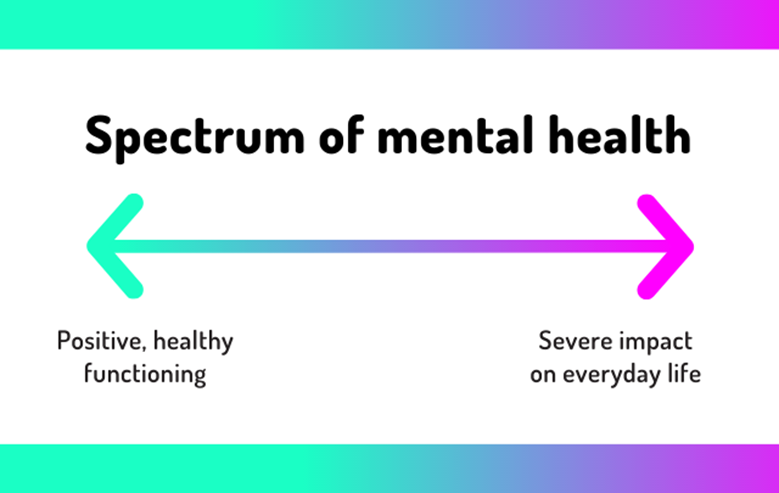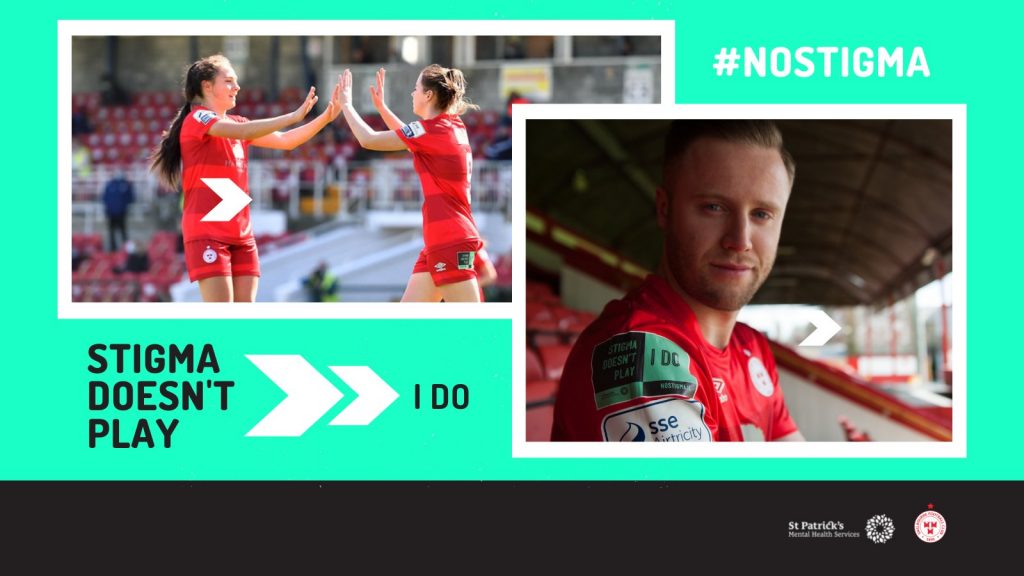As part of our #NoStigma partnership with St Patrick’s Mental Health Services, the team at SPMHS is answering different mental health questions and fostering openness in the community.
Right now, looking after our own and others’ mental health has never been more important, and conversation and awareness about mental health have never been so strong. Having a good understanding of what mental health means is an important part of both looking after ourselves and tackling stigma.
Mental health means a state of wellbeing that helps us to cope with the normal stresses of life, to work and contribute to our communities, and to develop as people.
Good mental health supports how we:
- think, feel and behave
- interact with other people
- look after ourselves and others
- take part in and enjoy our lives.
Our mental health isn’t fixed. It can be helpful to think about mental health as a spectrum. Over the course of life, our mental health may move back and forth on this spectrum at different times and depending on what’s happening in our lives.
There are lots of things we can do to support our mental health in daily life. You can find some information and tips from our SPMHS team here. You can also find helpful advice and information from Healthy Ireland and the Health Service Executive (HSE).

What are mental health difficulties?
At different times in our lives, we may need to get some help and support for our mental health. This might be because of particularly stressful or difficult times and experiences. Challenges many people have faced recently – like family concerns, job loss, or health worries – can all have an impact on our mental health, for example. Or, it might be because of worrying changes in how we are thinking, how we are feeling, or how we are acting.
Experiencing some ups and downs in our mental wellbeing day-to-day is a normal part of life. Over recent months, for example, many of us may have been worried or anxious at times or finding it hard to concentrate and get motivated for different things. These can be understood as normal reactions to abnormal circumstances. Mental health difficulties are considered more severe: when there is significant disruption to our daily lives, when problems last more than a couple of weeks, or if we are having worrying thoughts or ideas about harming ourselves.
If you are worried about your mental health, it’s important not to delay speaking with someone. In addition to trusted friends or family, often speaking to your family doctor, or GP, is the best first step. You might find it helpful to listen to this podcast with our Chief Executive Officer, Paul Gilligan, who talks through knowing when to seek help for your mental health.
There are different views on how to describe mental health difficulties. A person experiencing a mental health difficulty may seek and receive a diagnosis from a mental health professional such as a psychiatrist. A diagnosis gives a medical or psychiatric name for a mental health condition, such as an anxiety disorder or psychosis. Others may dislike the notion of “labels” and may feel certain psychiatric language does not describe or relate to their mental health experiences. Any of us who experience mental health difficulties will decide for ourselves the language we feel best fits with our experiences and or values.
We may all experience different levels of mental health and wellbeing over our lives, whether or not we have a specific mental health difficulty. For example, you may have a serious mental health difficulty which you require ongoing support and help with, but you can still achieve a high level of wellbeing day-to-day.
Where can I get more support if I need it?
If you are concerned about your mental health or would like more information about mental health services, you can find a regularly updated list of supports here. It’s important to remember that support is still available and, the sooner we reach out for help and support when we need it, the better it is for our mental health and recovery.
Where can I learn how to tackle stigma?
- Learn about our #NoStigma campaign and how you can get involved.
- Find out about how words matter when it comes to mental health.
- See more about SeeChange, Ireland’s organisation dedicated to ending mental health stigma.
Are you a member of Shelbourne FC?
We want to know what’s important to you!
- Are there mental health topics you’d like to learn more about?
- What questions do you have about mental health?
Please take a minute to fill out our short survey so that we can create more understanding about mental health together.













